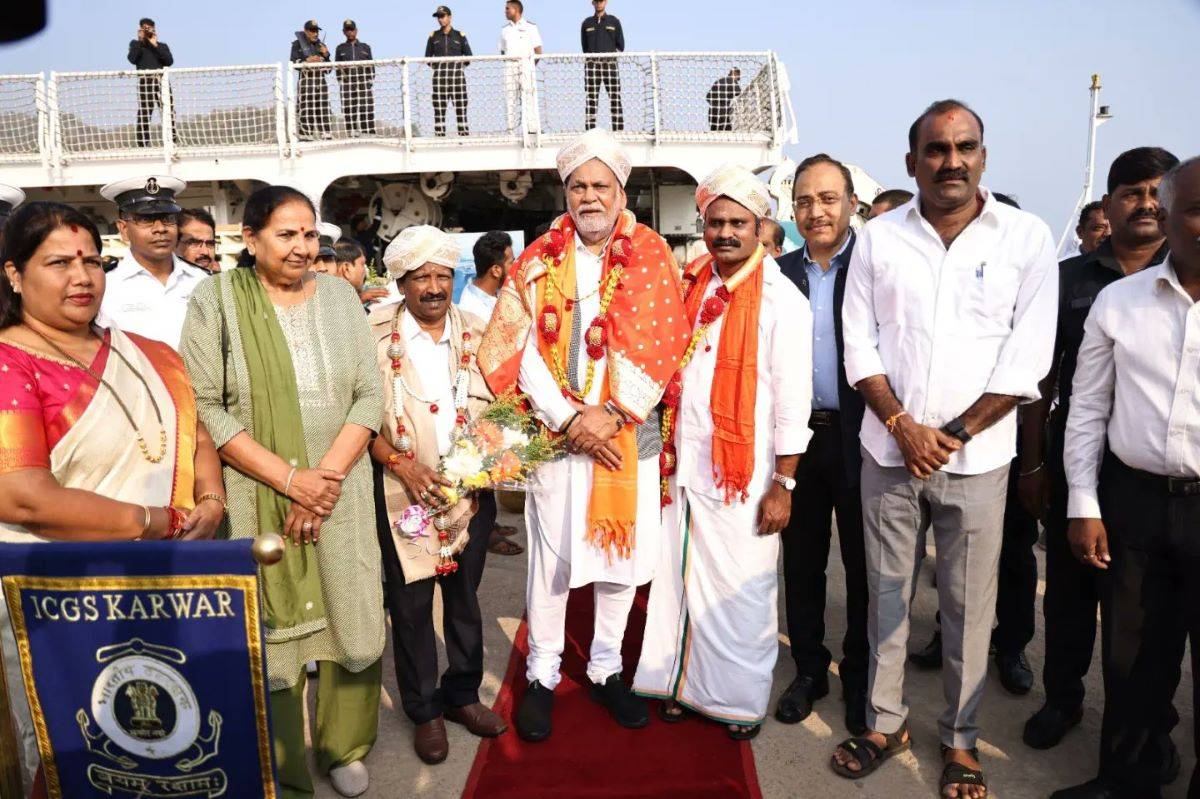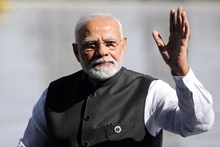
Phase-IV of the 'Sagar Parikrama' in Karnataka will last two days, covering the stretch of Uttar Kannada on March 18th and Udupi on March 19th, followed by Dakshan Kannada. In total, 10 locations in three coastal districts will be covered.
Union Minister for Fisheries, Animal Husbandry and Dairying, Parshottam Rupala, Minister of State for Fisheries, Dairying and Animal Husbandry, and Dairying, Dr. Sanjeev Kumar Balyan, Minister of State for Fisheries, Animal Husbandry, and Dairying & Information and Broadcasting, Dr. L. Murugan, many other officials and fishermen representatives will take part in the event. The journey will be accompanied by the State Fisheries officials, Fishermen representatives, Fish-farmers, entrepreneurs, stakeholders, professionals, officials and Scientists from across the nation.
Certificates/sanctions related to the Pradhan Mantri Matsya Sampada scheme, KCC & State Scheme will be awarded during the event to progressive fishermen, particularly coastal fishermen, fishers and fish farmers, young fishery entrepreneurs, and so on. Literature on the PMMSY scheme, state schemes, e-shram, FIDF, and KCC, among others, will be widely disseminated through print media, electronic media, videos, and a digital campaign using jingles among fishermen. A Kannada song about Sagar Parikrama will also be released.
Sagar Parikrama would assist the government in developing better policies to improve the quality of life and economic well-being of the country's coastal community, particularly marine fishermen. The journey of Sagar Parikrama will focus on achieving a sustainable balance between the utilisation of marine fisheries resources for the nation's food security and the livelihoods of coastal fisher communities, as well as the protection of marine ecosystems, to bridge the various gaps of fisher communities, development of fishing villages, upgradation and creation of infrastructure such as fishing harbours and fish landing centres, and to ensure sustainable and responsible development.
Karnataka state has 5.74 lakh hectares of freshwater resources, including 3.02 lakh hectares of ponds and tanks, 2.72 lakh hectares of reservoirs, 8,000 hectares of brackish water resources, and 320 kilometres of coastline with a continental shelf area of 27,000 square kilometres. Dakshina Kannada alone contributes 40% of total catch in Karnataka, followed by Uttara Kannada (31%), and Udupi (29%). The fishing harbours of Mangaluru and Malpe are the main contributors in the Dakshina Kannada and Udupi districts, respectively. There are 9.84 lakh fishers in the state, as well as 729 Fishermen Cooperative Societies (132- marine and 597- inland).
The state's fish production contributed approximately 6.6% of India's total fish production for the year 2021-22, ranking third in total fish production, fifth in marine fish production, and seventh in inland fish production. The state's per capita fish consumption is approximately 8.08 kg. The Fisheries Sector contributed Rs. 2,723 crore to GSDP at current prices in 2011-12, and this figure is expected to rise to Rs. 7,827 crore in 2020-21. During 2021-22, the export value of marine products from Karnataka was 1,20,427 MT worth Rs.1,962.19 crore.
As a spirit of the 75th Azadi Ka Amrit Mahotsav, Sagar Parikrama is an evolutionary journey planned in the sea across the coastal belt. It is a Government of India initiative aimed at resolving the issues of fishers and other stakeholders and facilitating their economic upliftment through various fisheries schemes and programmes implemented by the Government of India such as PMMSY, FIDF, and KCC for fisheries, among others.
To meet the Sustainable Development Goals, the Government of India has adopted a holistic approach to improve the quality of life and economic well-being of people in rural areas, as well as to create more livelihood opportunities (SDGs). Sagar Parikrama is one such programme, which began in Gujarat, Diu, and Daman and has now ended in Maharashtra. The remaining states are Goa, Karnataka, Kerala, Tamil Nadu, Andhra Pradesh, Odisha, West Bengal, Andaman and Nicobar Islands, with the goal of having interaction programmes with fishermen, fisher communities, and stakeholders in these locations in order to understand the problems of Coastal Fisher folk.
The country has 8,118-kilometer coastline that spans nine maritime states and four union territories, supporting the livelihoods of 2.8 million fishermen. India accounts for 8% of global fish production and is the world's third largest producer of fish. The nation's total fish production is 162.48 lakh tonnes, with inland production accounting for 121.21 lakh tonnes and marine production accounting for 41.27 lakh tonnes. In 2021-22, the value of fisheries exports was INR 57,586.48 crores.
The sector has a consistent growth rate in GVA, accounting for 6.724% of Agriculture GDP and contributing approximately 17% of agricultural exports. In India, fishery in general is an open access fishery governed by various Acts and regulatory measures enacted by the government over the years.









